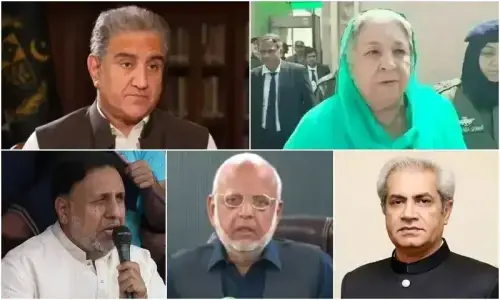KABUL: US Defense Secretary Ashton Carter arrived in Afghanistan Friday on an unannounced visit, officials said, with media reporting his trip was aimed at assessing the deteriorating security situation in the country.
His visit comes amid an surge in Taliban attacks across Afghanistan and mounting concerns that loyalists of the militant Islamic State group are making steady inroads in the country.
“(Carter) has landed” in Afghanistan, the Pentagon said in a brief statement.
The US embassy in Kabul also confirmed his arrival, but shared no details on the purpose of his visit.
Local media said the surprise visit, which comes after a brief stopover in Iraq, is meant to assess the fragile security situation in Afghanistan.
Fuelling those concerns is a new Pentagon report released this week detailing a surge in insurgent attacks in the second half of 2015.
This month marks a year since the US and Nato led mission in Afghanistan transitioned into an Afghan-led operation, with allied nations assisting in training local forces.
President Barack Obama in October announced that thousands of US troops will remain in Afghanistan past 2016, backpedalling on previous plans to shrink the force and acknowledging that Afghan forces are not ready to stand alone.
The Taliban briefly captured the strategic northern city of Kunduz in September in their most spectacular victory in 14 years, dealing a stinging blow to Afghan forces as they battle the insurgents on multiple fronts.
The Taliban have since then threatened several other provincial centres -- from Lashkar Gah in the south to Maimana in the northwest - fuelling concerns that Afghanistan was on the brink of a security collapse.
Obama said the United States will maintain its current force of 9,800 in the country through 2016.
After that, rather than go down to a normal embassy presence as had been planned, the United States will leave a force of 5,500 troops in place to train Afghan forces and conduct counter-terrorism missions.
Obama's decision recognised Afghan forces “will require more time and assistance to develop into a capable, credible and independent force”, the Pentagon report stated.
The Taliban have stepped up attacks on government and foreign targets despite President Ashraf Ghani's diplomatic outreach to Pakistan aimed at reviving peace talks with the resurgent group.
Pakistan hosted a milestone first round of peace negotiations in July.
But the talks stalled when the Taliban belatedly confirmed the death of longtime leader Mullah Omar, sparking a power struggle within the movement.
Western officials have also warned that the IS group, attracting disaffected Taliban fighters, is an emerging threat in Afghanistan's eastern provinces.
































